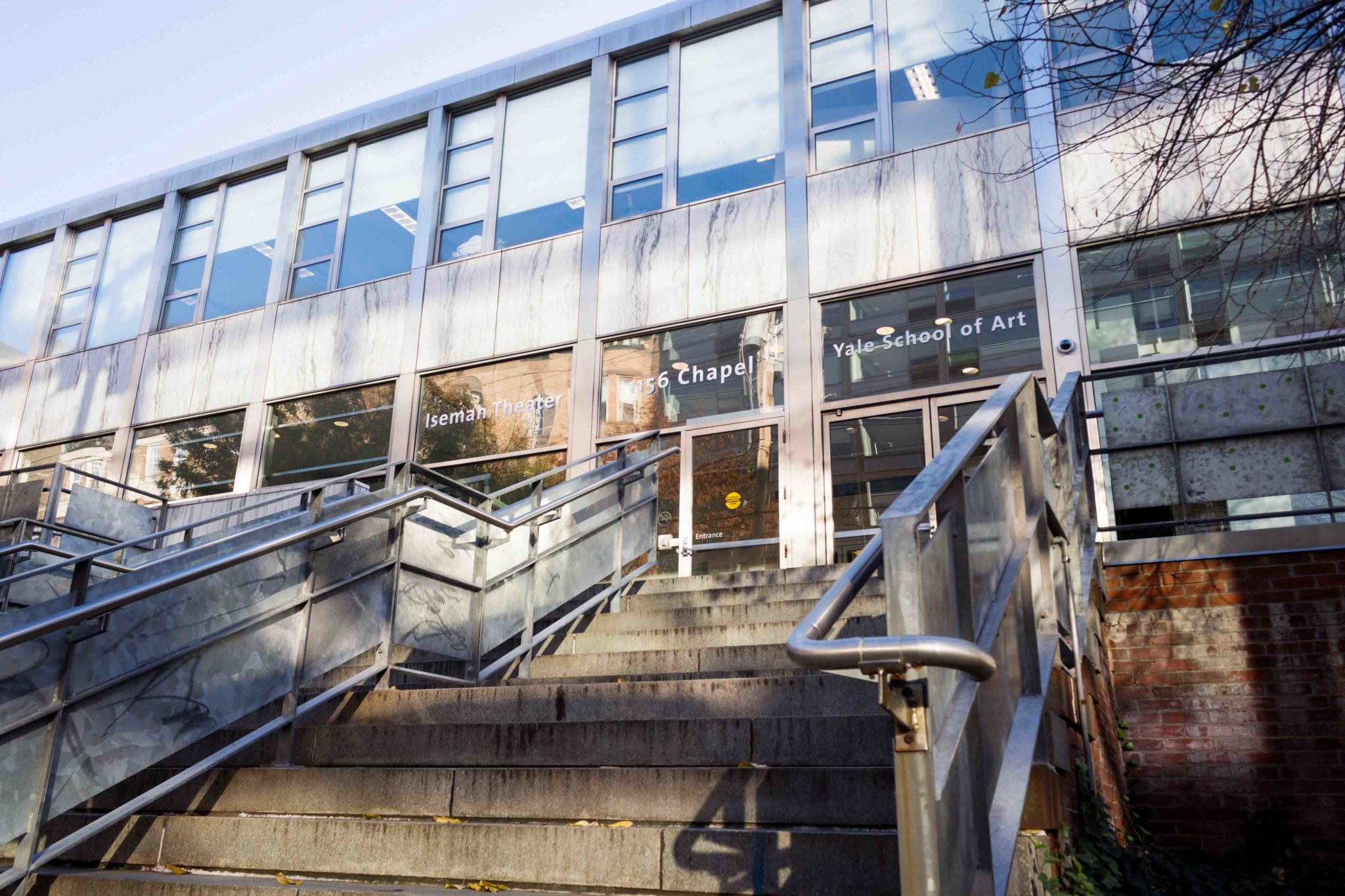
Earlier this month, the invitation of guest lecturer Deanna Havas — a contemporary artist who has expressed “alt-right” statements on social media — to a School of Art class prompted protests from Yale School of Art students.
In an email to their professor of photography, Matthew Leifheit ART ’17, on Oct. 8 prior to the lecture that day at 11 a.m., a group of students in the class wrote that they felt that the School of Art should not give a platform to Havas, given her controversial social media presence. The email contained a link to artist Luke Turner’s compilation of some of Havas’ Twitter posts — including a photo of a text message stating, “If u kiss another girl I’ll come do a school shooting at your college,” and a Tweet stating, “I’m dangerous bc u know ima pull a hitler if i don’t make it in art.” Havas is of Jewish descent.
Leifheit said he invited Havas to his graduate seminar on artists working in numerous media, titled “How to Do Everything.” According to Leifheit, Havas is a painter, sculptor, photographer, poet and critic whose practice he thought “would bring educational value” to his course. Despite protests, Havas’ lecture proceeded as planned.
“I am deeply disturbed that the invited speaker at the center of the current debate achieved a platform within the School,” wrote Yale School of Art Dean Marta Kuzma, in an email sent to the School of Art community on Oct. 11 — three days after the guest lecture.
Much of the controversy surrounding Havas’ social media presence is centered upon her liking a meme on Twitter that displays Pepe the Frog — a common trope in memes often appropriated by white nationalist groups — holding up a piece of stolen artwork as he runs from helicopters. According to Turner’s Twitter response to Havas’ post, the meme depicts and celebrates a recent incident in which the Traditionalist Worker Party — a neo-Nazi group — stole Turner’s artwork bearing the unifying message “HE WILL NOT DIVIDE US” from an art exhibit.
Kuzma wrote in her email that the University’s freedom of expression policies are integral to the growth of the community. While she noted that her role is not to censor pedagogical decisions made by faculty members, there is a difference between controversial artistic practices and an artist with a social media presence that expresses “hate, racism, antisemitism, and support of physical violence towards others.” She added that such a social media presence is “not necessarily controversial, rather it is an expression of pure intolerance.”
Kuzma did not respond to request for comment, and School of Art Assistant Dean for Communications and Digital Media Sarah Stevens-Morling said that Kuzma did not have anything to add at the time beyond her communitywide email.
In light of student reactions on campus, Kuzma held two town-hall meetings to engage in an open dialogue with students who wished to share their thoughts and concerns regarding Havas’ invitation to Yale. The first meeting took place on Tuesday, Oct. 9, for graduate students in photography, and the second was held on Wednesday, Oct. 10, for all graduate students, faculty and administration. In her email, Kuzma said these meetings were “productive, civil, and generative,” and that she is “heartened” to see the community coming together in a broader discussion about expression and the weaponizing of that freedom.
Leifheit told the News that he did not intend to cause controversy or pain by inviting Havas to campus. He noted that Turner’s website took some of the social media content in question out of context. According to Leifheit, Havas is “an ironist” and most likely did not mean for her offensive comments to be taken literally.
Leifheit added that “Havas’ politics are not mine, nor are her tactics, but to suggest that her method of political critique is hate speech is a misunderstanding.”
Leifheit told the News that he sent an email informing students that Havas’ presence on campus could be “potentially controversial.” But Kuzma stated in her email that “there could and should have been advance preparation for students attending and a heightened level of transparency about the speaker.”
“I don’t think Deanna Havas deserves any more attention,” said Simone Cutrì ART ’19. “I don’t know if you know her ‘work,’ but I don’t think she deserves anything more from this institution. [To] keep talking about her would just increase her ego, and it’s already high. I don’t agree on what she is standing for.”
Cutrì requested that the News not cover the story about Havas, asserting that Havas is waiting to receive negative critique that might bolster her social media presence and allow her to gain more followers.
The other 28 graduate students contacted by the News all declined to comment.
Director of Undergraduate Studies in the art department Lisa Kereszi addressed the undergraduate community in an email on Oct. 9, saying that she was as “shocked and confused” as many students were. Kereszi added that “the administration” is working to move forward productively.
Havas’ Twitter account is currently deleted.
Lindsay Daugherty | lindsay.daugherty@yale.edu
Jever Mariwala | jever.mariwala@yale.edu







